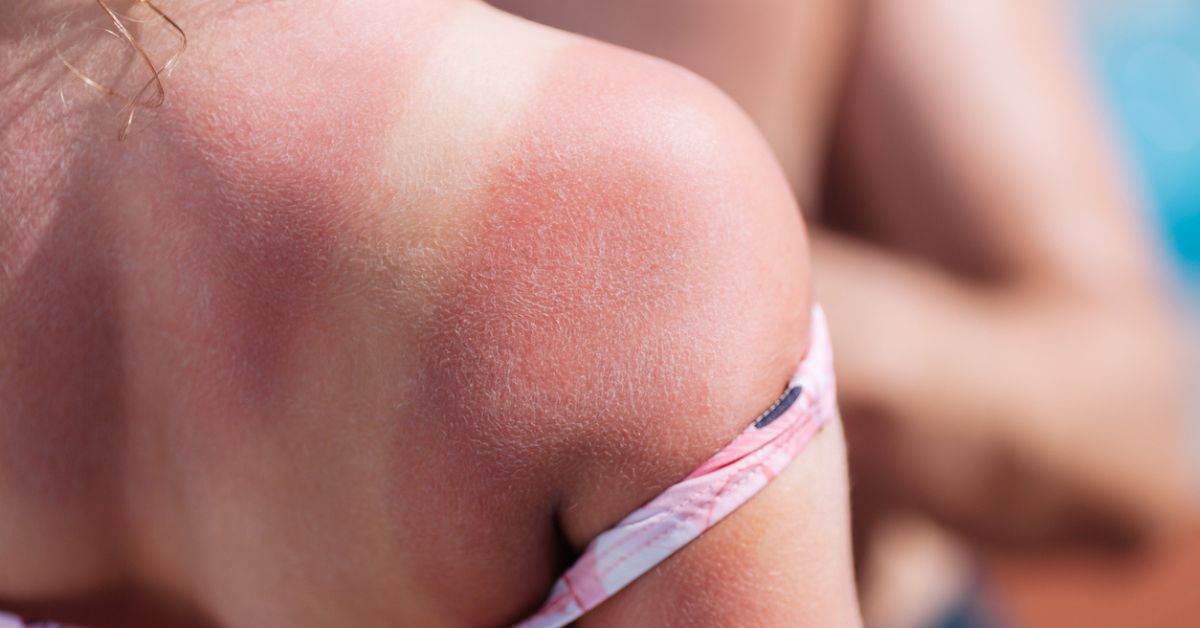As the warmth of summer beckons us to enjoy outdoor activities, it's important to remember that prolonged sun exposure can have harmful effects on our skin. Sun poisoning is a common condition caused by overexposure to the sun's ultraviolet (UV) rays.
In this guide from Urgentology Care, we'll explore the symptoms, causes, and treatment options for sun poisoning, as well as prevention tips and how to recognize severe cases.
Symptoms of Sun Poisoning
The symptoms of sun poisoning can vary depending on the severity of the burn but commonly include:
- Redness and swelling of the skin
- Pain or tenderness
- Itching and tingling
- Blisters
- Peeling skin
- Nausea and headache
- Fatigue and dizziness
In severe cases, sun poisoning can also cause fever, chills, and dehydration and may require medical attention.
Causes of Sun Poisoning
Sun poisoning is caused by overexposure to the sun's UV rays. Factors that can increase the risk of developing sun poisoning include:
- Spending prolonged periods of time in direct sunlight without protection, especially during peak sun hours (10 am to 4 pm).
- Not using sunscreen or using sunscreen with a low SPF (sun protection factor).
- Having fair skin that is more susceptible to sunburn.
- Taking medications that increase sensitivity to UV rays, such as certain antibiotics, diuretics, and acne medications.
- Engaging in outdoor activities like swimming or hiking without proper sun protection.
- Living in or traveling to high-altitude areas where UV radiation is stronger.
Treatment & Prevention of Sun Poisoning
If you suspect that you have sun poisoning, it's important to take immediate action to alleviate the symptoms and prevent further damage to your skin. Here are a few ways to avoid and treat sun poisoning:
- Get out of the sun: Move to a shaded area or go indoors to avoid further exposure to the sun's rays.
- Cool compresses: Apply cool, damp compresses or take cool showers to soothe the skin and reduce inflammation.
- Moisturize: Apply aloe vera or moisturizer with calming ingredients like chamomile or calendula to help hydrate the skin.
- Over-the-counter pain relievers: Take over-the-counter pain relievers like ibuprofen or acetaminophen to help reduce pain and discomfort.
- Stay hydrated: Drink plenty of water to replenish fluids lost due to sun exposure and prevent dehydration.
- Avoid tight clothing: Avoid wearing tight clothing over sunburned skin as it can cause further irritation.
- Use sunscreen: Apply a broad-spectrum sunscreen with a high SPF (at least 30) generously all over your exposed skin, including your face, neck, and ears. Reapply every two hours or immediately after swimming or sweating.
- Wear sunglasses: Wear sunglasses that block 100% of UVA and UVB rays to protect your eyes from harmful UV radiation.
Recognizing Severe Cases
While most cases of sunburn can be treated at home with self-care measures, it's important to recognize when a case of sun poisoning may be severe. Seek medical help if you experience any of the following symptoms:
- Severe pain and blistering
- Swelling of the face, lips, or eyelids
- High fever and chills
- Nausea, vomiting, and headache
- Signs of dehydration such as dizziness, confusion, or decreased urination
These symptoms may indicate a more severe form of sun poisoning that requires immediate medical attention. Delaying treatment can lead to serious complications such as sunstroke, heat exhaustion, or even long-term damage to the skin.
Summertime Urgent Care Services
If you or a loved one find yourself sick or injured this summer, pay the Urgentology Care team a visit. Our services are here to keep the whole family safe and healthy this season. Contact us today to learn more!


